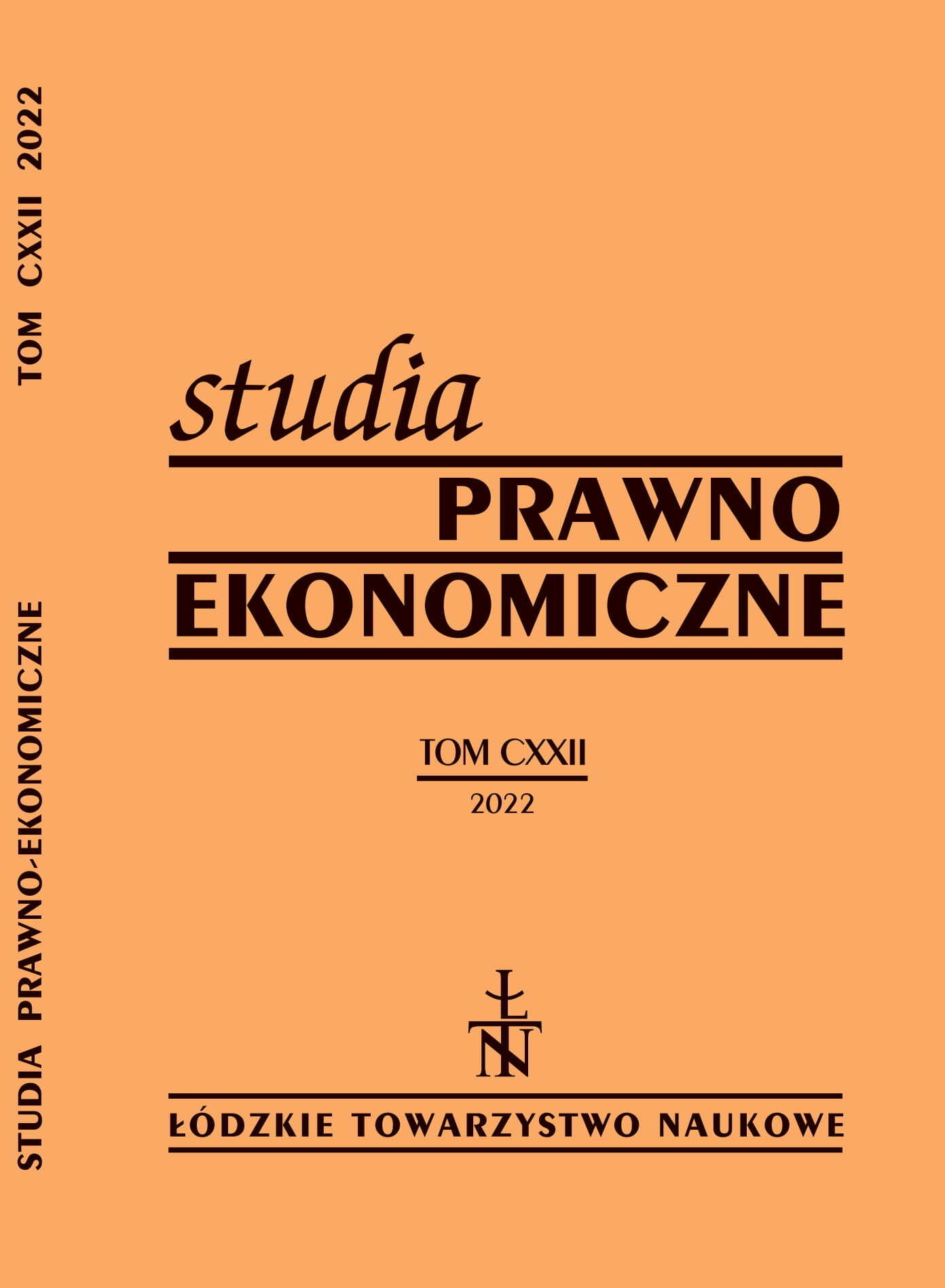Changes in cash levels of public companies in Poland in the period 2001–2019
DOI:
https://doi.org/10.26485/SPE/2022/122/7Keywords:
cash management, cash and short-term investments, panel modelsAbstract
Background: The subject of this paper is related to cash management and determinants of companies’ cash holdings within the framework of corporate finance theory. One phenomenon that has received considerable attention is the upward trend in cash holdings of US public firms, which has been explored in a number of US studies. There are no studies explaining whether cash management trends in Poland are similar to those observed in the biggest world economy. In empirical studies devoted to cash management in Poland, the analysis of aggregate data has been of little interest.
Research purpose: The focus of this article is on presenting the course of changes in cash holdings maintained by public companies listed on the Warsaw Stock Exchange in the period from 2001 to 2019 and explaining them in the framework of corporate finance theory.
Methods: Changes in the average and aggregate cash-to-assets ratio were analysed. In order to determine how these changes of cash-to-assets ratios are explained with changes of selected macro- and microeconomic variables, linear regression models for firm-averages and panel data models were estimated.
Conclusions: The study shows that changes in cash holdings of listed companies in Poland differed from the trends observed among big US corporations. It also indicates that companies’ approaches to cash management were very much aligned with that explained by the finance theory
Downloads
References
Alles L., Lian Y., Xu C., The determinants of target cash holdings and adjustment speeds: An empirical analysis of Chinese firms, SSRN Electronic Journal 2012, pp. 1–32, http://www.ssrn.com/abstract=1981818; accessed 20.11.2021.
Azar J., Kagy J., Schmalz M., Can changes in the cost of carry explain the dynamics of corporate “cash” holdings?, Review of Financial Studies 2016/29 (8), pp. 2194–2240.
Bates T., Kahle K., Stulz R., Why do US firms hold so much more cash than they used to?, Journal of Finance 2009/64, pp. 1985–2021.
Begenau J., Palazzo B., Firm selection and corporate cash holdings, Journal of Financial Economics 2021/139 (3), pp. 697–718.
Boileau M., Moyen N., Corporate cash holdings and credit line usage, International Economic Review 2016/57, pp. 1481–1506.
Dittmar A., Mahrt-Smith J., Servaes H., International corporate governance and corporate cash holdings, Journal of Financial and Quantitative Analysis 2003/38, pp. 111–133.
Falato A., Kadyrzhanova D., Sim J., Rising intangible capital, shrinking debt capacity, and the US corporate savings glut, Working Paper, Federal Reserve Board, Washington, D.C. 2013.
Faulkender M., Hankins K., Petersen M., Understanding the Rise in Corporate Cash: Precautionary Savings or Foreign Taxes, Review of Financial Studies 2019/32 (9), pp. 3299–3334.
Ferreira M., Vilela A., Why do firms hold cash? Evidence from EMU countries, European Financial Management 2004/10 (2), pp. 295–319.
Fuksa D., Zarządzanie środkami pieniężnymi na przykładzie przedsiębiorstwa górniczego, Gospodarka Surowcami Mineralnymi 2009/25 (1), pp. 119–135.
Gill A., Mathur N., Factors that influence corporate liquidity holdings in Canada, Journal of Applied Finance and Banking 2011/1 (2), pp. 133–153.
Graham J., Leary M., The Evolution of Corporate Cash, Journal of Applied Corporate Finance 2018/30 (4), pp. 36–60.
Graham J., Leary M., The Evolution of Corporate Cash, Review of Financial Studies 2018/31 (11), pp. 4288–4344.
Graham J., Leary M., Roberts M., A century of capital structure: The leveraging of corporate America, Journal of Financial Economics 2015/118, pp. 658–683.
Harford J., Corporate cash reserves and acquisitions, Journal of Finance 1999/54, pp. 1969–1997.
Harford J., Mansi S., Maxwell W., Corporate governance and firm cash holdings in the US, Journal of Financial Economics 2008/87, pp. 535–555.
Jensen M., Meckling W., Theory of the firm: managerial behaviour, agency costs and ownership structure, Journal of Financial Economics 1976/3 (4), pp. 305–360.
Kim C., Mauer D., Sherman A., The determinants of corporate liquidity: Theory and Evidence, Journal of Financial and Quantitative Analysis 1998/33, pp. 335–359.
Kolegowicz K., Sierpińska M., Cash Management in Energy Companies, Journal of the Polish Mineral Engineering Society, 2020 July–December, pp. 95–100.
Kusnadi Y., Wei K., The determinants of corporate cash management policies: Evidence from around the world, Journal of Corporate Finance, 2011/17 (3), pp. 725–740.
Myers S., The capital structure puzzle, Journal of Finance 1984/39 (3), pp. 575–592.
Myers S., Majluf N., Corporate financing and investment decisions when firms have information that investors do not have, Journal of Financial Economics 1984/13 (2), pp. 187–221.
Nikolov B., Whited T., Agency conflicts and cash. Estimates from a dynamic model, Journal of Finance 2014/69, pp. 1883–1921.
Opler T., Pinkowitz L., Stulz R., Williamson R., The determinants and implications of corporate cash holdings, Journal of Financial Economics 1999/52, pp. 3–46.
Ozkan A., Ozkan N., Corporate cash holdings: An empirical investigation of UK companies, Journal of Banking & Finance 2004/28, pp. 2103–2134.
Phan H.V., Nguyen N., Nguyen H., Hegde S., Policy uncertainty and firm cash holdings, Journal of Business Research 2019/95, pp. 71–82.
Pociecha G., Brycz B. (eds.), Efficiency in Business and Economics, Springer Proceedings in Business and Economics 2018, pp. 119–132.
Riddick L., Whited T., The corporate propensity to save, Journal of Finance 2009/66, pp. 1729–1766.
Uziębło A., Kopeć B., Optymalizacja gospodarowania środkami pieniężnymi w przedsiębiorstwie ciepłowniczym z wykorzystaniem modelu Millera-Orra, Finanse, Rynki Finansowe, Ubezpieczenia 2016/82 (1), pp. 521–531



